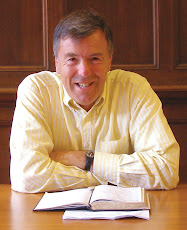The Pope, as well as being the global head of the Roman Catholic Church, is head of state of the Vatican, a small entity that came into existence as a result of an agreement between the Church and Mussolini in 1929 and which entitles the Vatican to membership of the United Nations.
The first official papal visit to the UK raises various significant issues of protocol and religious sensitivity. Diplomatic relations between the UK and the Roman Catholic Church were only fully restored after a break of 423 years, on the occasion of the previous Pope’s visit in 1982 which was a pastoral and not a state visit. The current visit, like its predecessor, still does not involve Northern Ireland where there are particular religious sensitivities. Because the present visit is a state occasion the UK government will be contributing towards its cost unlike the previous visit of Pope John Paul II.
Other issues arise in UK because the Queen, as Supreme Governor of the Church of England, is the titular Pope of the Church of England. In fact both the Pope and the Queen combine being head of state with being head of their respective state churches. But they are, of course, committed to different Christian faiths. Like all UK monarchs, under current laws, Queen Elizabeth II repudiated key doctrines of the Roman Catholic Church by oath in her Accession Declaration.
As it is a state visit the Pope will be received by the Queen but it is no accident that this meeting will take place in Holyrood Palace in Edinburgh, Scotland. While the Queen in Scotland is still bound by the oath of accession and a specific vow to maintain the Presbyterian form of church government in Scotland, she is not head of the Church of Scotland and can thus meet the Pope in Scotland purely as head of state without religious matters explicitly intruding.
The role of the UK monarchy with respect to religion and international relations is guided primarily by the UK government, and in some respects on domestic Scottish matters following devolution in 1999, by the Scottish Parliament and the Scottish Executive government. The Queen is thus advised on devolved Scottish matters such as education by the Scottish First Minister.
The state visit of the Pope to Scotland raises a number of other significant issues of public interest. In principle, the Pope, as a Roman Catholic priest, could pop across the road from Holyrood Palace to address the Scottish Parliament as part of its weekly time for reflection, in which representatives of religious denominations and other belief systems, roughly in proportion to their support in the Scottish population, offer their thoughts to the parliamentarians. Such an address would be impossible in the Westminster UK parliament since daily prayers there are conducted by Church of England priests, even though there are substantial numbers of MPs from other religions, including Roman Catholics, Jews, Muslims and atheists and from other parts of the UK such as Scotland, Wales and Northern Ireland for which the Church of England has no official religious role.
But while the Scottish Parliament is notionally more open to all faiths than the UK parliament it still has difficulty in living up to its proud founding principles to promote equal opportunities. It rightly in 1999 protested against the gender and religious discrimination that governs succession to the throne and prohibits Roman Catholics from succeeding to the throne but it has tolerated in Scotland the continuation of primary and secondary schools with a Roman Catholic ethos which provide education with state funding for about one in five pupils in Scotland. And essential to the ethos of these schools is the exclusion of women from the priesthood. No woman can be a priest, bishop, cardinal or Pope in the Roman Catholic Church. Can it be right that state funding encourages education in values which are in such discrepancy with modern life and which offend the principles of equal opportunity that are of such increasing significance in most walks of life today and of central concern to the Scottish Parliament itself?
In meeting the Queen the Pope will get as profound a reminder as could be possible of the ability of women, as much as men, to undertake the most significant roles in life.
skip to main |
skip to sidebar

Check for older posts at the bottom of the page
Analysing the current relationships between the UK state and religion and suggesting how they might be modernised.
Search This Blog
New Book
MONARCHY, RELIGION AND THE STATE:
Civil religion in the UK, Canada, Australia and the Commonwealth
By Norman Bonney,
Manchester University Press, October 2013
Advance online order deals with Amazon and Blackwells
There will be no miracles here
Scottish artist Nathan Coley translated the words used in a seventeenth century royal proclamation in a French town believed to have been the site of frequent miracles.
Dean Gallery Edinburgh
Dean Gallery Edinburgh
Related Links

Check for older posts at the bottom of the page